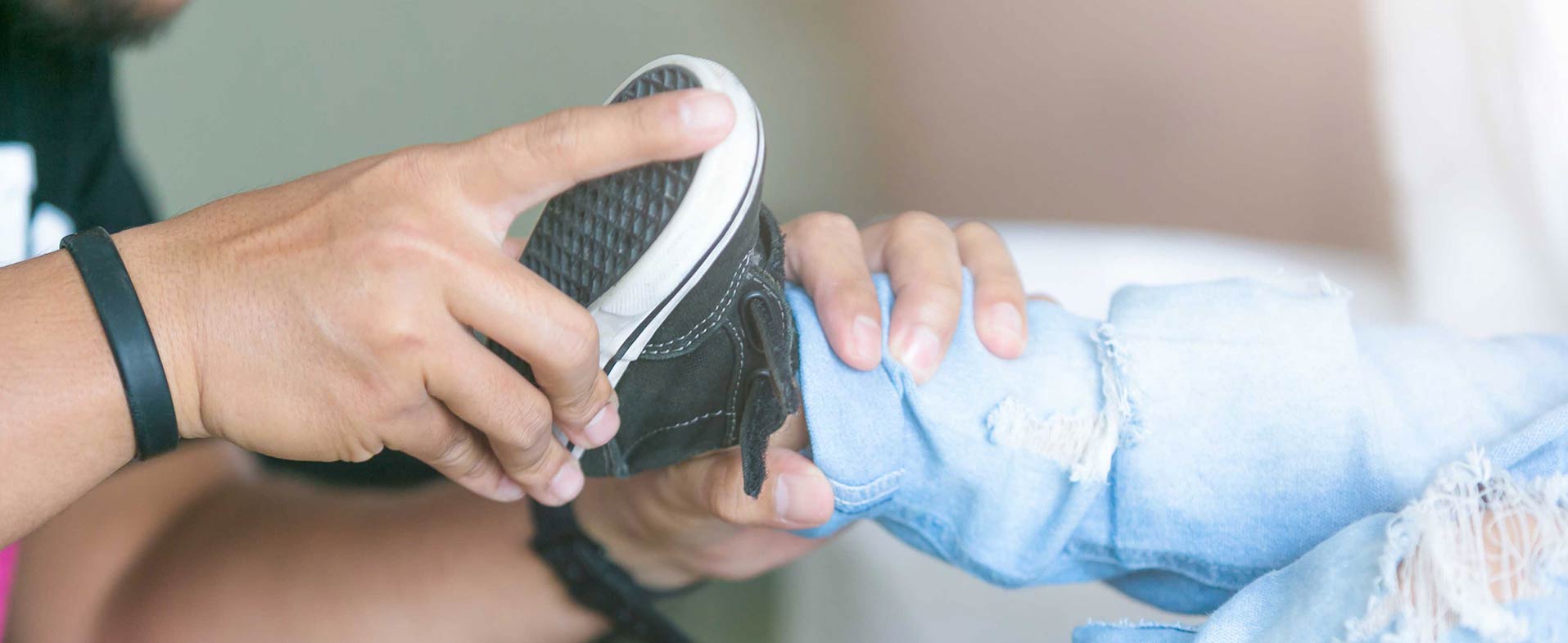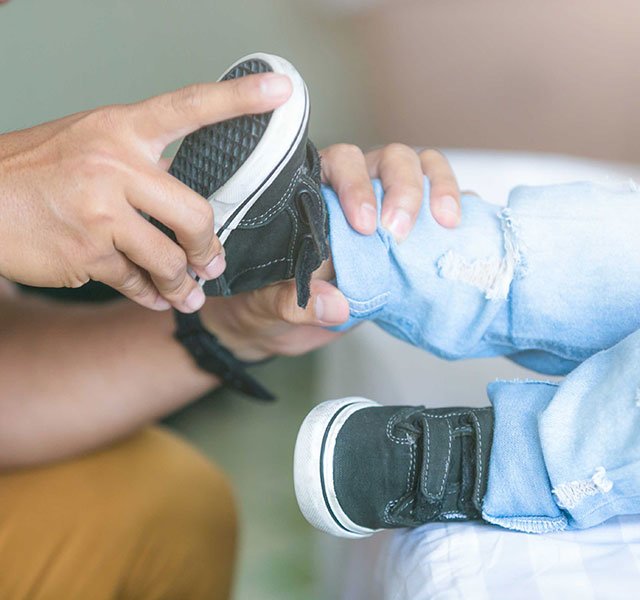Deciding on baby’s first footwear can be an exciting moment for parents. The cute booties or tiny tennis shoes are adorable, and the options are plentiful. With limitless shoe options available for babies and children of all ages, the importance of choosing supportive footwear can often be overlooked.
Baby’s First Shoes
Your baby’s first shoe will help provide confidence and balance for a new walker. Many babies roll over their feet due to the lack of hard bone in a foot. Shoes can protect the soft, developing foot from being stubbed, as well as give them a hard sole to use for support in the early months.
Babies are typically ready for their first pair of shoes between age 8-12 months, or when your baby is pulling themselves up and/or walking by holding furniture, before they are talking steps independently, according to Nicole Brouyette, DPM, a podiatrist for Henry Ford Health.
Look for a quality shoe with supportive soles and a leather strap just below the ankle, also known as baby boots. They can either be lace up or Velcro to help form to the foot. Bonnie Stuart is one good brand Dr. Brouyette recommends for your baby’s first boot.
On average, a shoe will typically last 3 months for children 8-24 months old and 5 months after 24 months old. If the shoe is getting too small you will notice difficultly putting them on, and your child may start stumbling more.
“The most important thing is to make sure the shoe fits properly,” says Dr. Brouyette. “Wearing the wrong shoe size can cause a variety of consequences – from blisters, irritation, ingrown nails and tendinitis. Children’s feet grow rapidly and keeping an eye on the fit is key.”
Tips for Finding Shoes for Your Child
Dr. Brouyette offers advice to keep in mind when purchasing footwear for children of all ages:
- Take your child with you to try on shoes. Every shoe can fit differently, even if you already know their size. Also bring a pair of socks!
- One size doesn’t always fit all. Parents are not always aware that one foot maybe larger than the other. Always buy for the larger of the two feet.
- Size regularly. As adults whose shoe size doesn’t change, sometimes we forget just how quickly children’s feet grow. Be sure they’re wearing the proper size, and adjust as often as needed.
- Use a brannock. Brannocks are standard tools to measure feet and are widely available at more shoe or department stores. To best measure your child’s feet, be sure they are standing and then go up one half size to a full size.
- Never hand down footwear or buy resale. Just because it fits one child doesn’t mean it will fit another. Also sharing footwear can lead to fungal issues and discomfort, so avoid hand-me-downs if at all possible.
- Skip the flats. Flat shoes for children are usually not recommended. Just like adults, children develop an arch, or lack thereof. Good midsole support is recommended.Have a podiatrist look at your child’s old shoes. After a child wears out a shoe, a podiatrist can look at the wear patterns to determine foot shape and gait pattern (neutral, supinated or pronated). These unique features of your child’s feet can help decide what type of shoe will fit them best.
“Like with anything, addressing any issues or concerns you may have early on can really be key in treating and preventing bigger issues down the road,” Dr. Brouyette adds.
If your child is experiencing flat feet, ingrown nails, foot pain, or is walking abnormally (on their toes, toes pointing inward/outward, etc.), you may want to consider having them visit a podiatrist or talk with your pediatrician.
To learn more about pediatric foot and ankle conditions or to make an appointment with a podiatrist, visit henryford.com or call 1-800-HENRYFORD (436-7936).
Dr. Nicole Brouyette is a podiatrist who specializes is foot and ankle surgery. She sees patients at Henry Ford Hospital in Detroit and Henry Ford Medical Centers – Fairlane (Dearborn) and Pierson Clinic (Grosse Pointe Farms).



